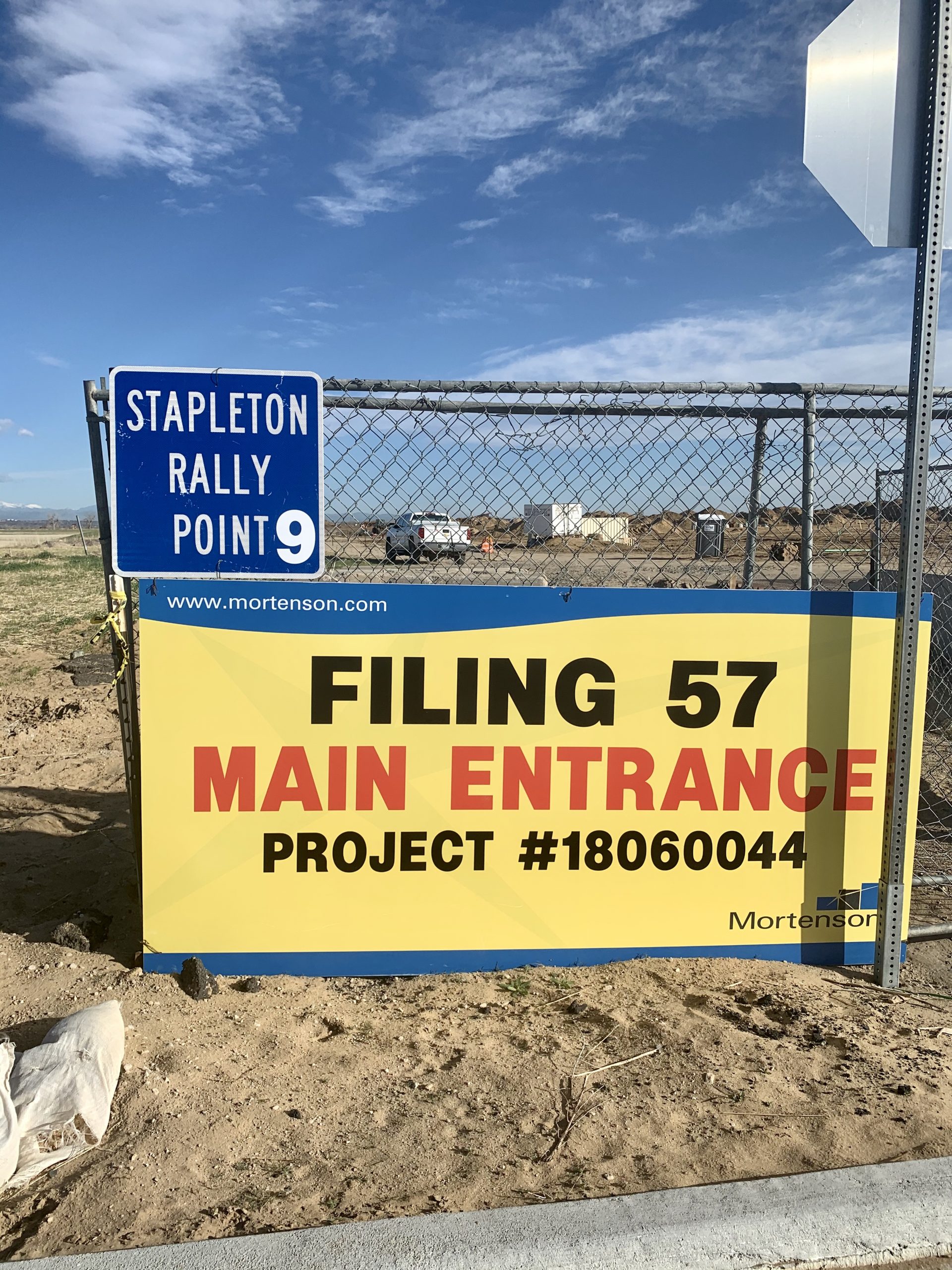If you haven’t heard, many Denver homes are selling quickly, and for high prices, these days. Denver posted a number of real estate records in July. Amazingly, the single-family home price average is now a record $601,863!

If you’ve been following our Friday real estate updates on the Scoop, you also know that Central Park real estate is performing well. Of course, real estate is hyperlocal, and anecdotally what our 7 brokers here at Focus Real Estate have seen is that well-priced homes with desirable floor plans, upgrades, yards, and locations can, if everything aligns, have multiple bidders and sell quickly. Other homes are selling on more normal sales cycles (e.g., 60+ days on the market) and at more typical appreciation rates.
So … let’s talk about bidding wars. Our brokers have been involved in well more than a dozen bidding wars in Central Park and elsewhere in Denver this summer, both on the buy side and the sell side. The reality is every deal is unique and there’s no guaranteed path to winning every multiple bid scenario. But we wanted to share a little of what we’ve learned on our recent deals.
Before we dive in, I wanted to quickly remind you that Focus sells homes in Denver for a 1.5% listing commission. We’re a full service brokerage, with reduced commissions.
With that said, on to the bidding wars!
Ashley Parsons Faller, realtor:
 “One thing I appreciate when representing a seller in a multiple bid situation is more detail on a buyer’s loan from their lender. In this day and age, I think the strength of the financing can be an important factor. It’s awesome to get offers over list price. But if the funding is shaky and the lender isn’t very communicative, this could cause a major headache.
“One thing I appreciate when representing a seller in a multiple bid situation is more detail on a buyer’s loan from their lender. In this day and age, I think the strength of the financing can be an important factor. It’s awesome to get offers over list price. But if the funding is shaky and the lender isn’t very communicative, this could cause a major headache.
At the end of the day, it’s helpful to know if a buyer is buttoned up with their lender. If they’re buttoned up with their lender, that’s a great start and hopefully means the rest of the transaction will go smoothly as well. ”
Mariel Ross, co-owner and realtor:
 “One of the keys I tell my clients is let’s present the best terms in our offer that we can – such as limited inspections, appraisal gap coverage, or an escalation clause.
“One of the keys I tell my clients is let’s present the best terms in our offer that we can – such as limited inspections, appraisal gap coverage, or an escalation clause.
Let’s talk about escalation clauses. How do they work? Let’s pretend your original offer is $600k. Now let’s say the seller gets another offer at $605k. Our offer will automatically go up to a higher number, like $606k, up to whatever the maximum number is that you’re willing to pay for the home. Escalation clauses can differ and need to be specific to your deal and situation, but that’s a simple example to give you the general idea.
Appraisal gap coverage can be an offer term to consider as well. Many residential deals in Colorado require an appraisal in order to close. But what happens if there’s a bidding war, the home sells for well above list, and then the appraisal comes in low? An appraisal gap coverage clause basically says that if the home sale price is greater than the appraisal price, the buyer has to come up with the difference (instead of having the right to terminate the deal).
You’ll need to work with your lender, realtor, and financial advisor to make sure appraisal gap coverage is appropriate for your situation and deal, since you might have to come up with more money in addition to your down payment in order to close. But for the right deal, this type of clause might give the seller more comfort and might help your offer stand out.”
Amy Atkinson, realtor:
 “I recently had a client in a bidding war on the buy side. Beyond the money, timing, and situational tactics, I find having a knowledgeable agent that is willing to get on the phone as many times as possible to reach out to the listing agent is the most important part in getting the deal. That way, you can offer exactly what the sellers are looking for within the buyer’s range of comfort.”
“I recently had a client in a bidding war on the buy side. Beyond the money, timing, and situational tactics, I find having a knowledgeable agent that is willing to get on the phone as many times as possible to reach out to the listing agent is the most important part in getting the deal. That way, you can offer exactly what the sellers are looking for within the buyer’s range of comfort.”
Joe Phillips, co-owner and realtor:
 “Buyers sometimes ask about “love letters,” which are letters that talk about the buyer and how much they love a home. These can violate Fair Housing and other laws and are no longer common in the Denver market. So I tell our buyers to focus on their actual offer terms. Let’s do what we can to make those terms the best we can.
“Buyers sometimes ask about “love letters,” which are letters that talk about the buyer and how much they love a home. These can violate Fair Housing and other laws and are no longer common in the Denver market. So I tell our buyers to focus on their actual offer terms. Let’s do what we can to make those terms the best we can.
One term you might want to focus on in your offer is earnest money, and where and how it’s refundable. Typically a buyer has a number of termination rights in the standard Colorado real estate commission contract (most, but not all, Denver residential home deals are on the same standard contract template by the way). As examples, if the home has unresolved inspection issues or the buyer’s financing falls through, the buyer might be able terminate the deal – and get all their earnest money back.
You might ask your realtor about the pros and cons of making some of the earnest money non-refundable at some point before closing. This isn’t foolproof and has downside risks you can chat about with your realtor. But think about your deal terms and what you might be willing to offer.”
Kailee Ackerman, realtor:
 “Timing can be key! If you can submit an offer with flexibility on timing, that can be a plus.
“Timing can be key! If you can submit an offer with flexibility on timing, that can be a plus.
Sellers have to manage moving, maybe the closing of a new home. So put yourself in their shoes. Have your broker figure out what timing works for the seller. See what you can do!
We see a fair number of “sale-leasebacks” as well. What is that? Here’s an example:
In the offer, the buyer says we’ll close in 30 days, but we’ll let the seller stay in the home under a leaseback for a period of time after that. So the seller gets their home sold and gets the proceeds quick. Money in the pocket! And then the seller has more time after that to move, or to coordinate the close of a new construction home, or to close on a resale.”
Lisa Palladino, realtor:
 “Sometimes being the first offer can help. So you look at listing photos. You think you might love that home. Try to get in to do a showing as soon as you can after it’s listed. You can have your realtor prepared to write an offer in advance so you can finalize and submit your offer immediately after you see the home.
“Sometimes being the first offer can help. So you look at listing photos. You think you might love that home. Try to get in to do a showing as soon as you can after it’s listed. You can have your realtor prepared to write an offer in advance so you can finalize and submit your offer immediately after you see the home.
It might not matter at the end of the day, but some sellers really appreciate the first offer. The fourth offer might not feel quite the same for the buyer.”
So there you have it, friends! While every real estate transaction and every offer and negotiation is different, hopefully this gives you a few ideas about what you and your realtor should chat about if you think you might end up offering on a home that might have multiple offers.
*We can’t provide advice related to your specific deal or situation, and what’s discussed in this article might not apply to you or your deal. Please consult with your real estate agent if you have questions about your transaction. This article doesn’t constitute legal or real estate advice and should not be relied upon.*




